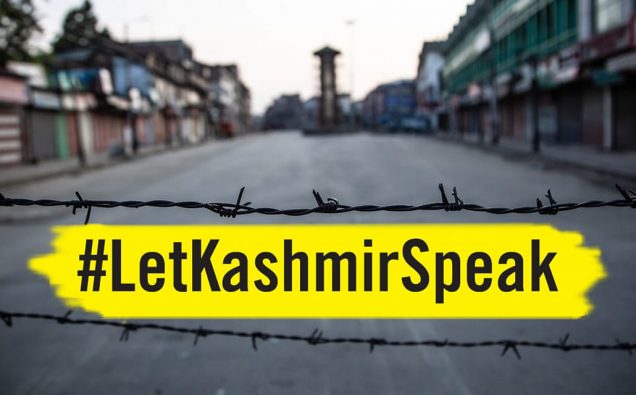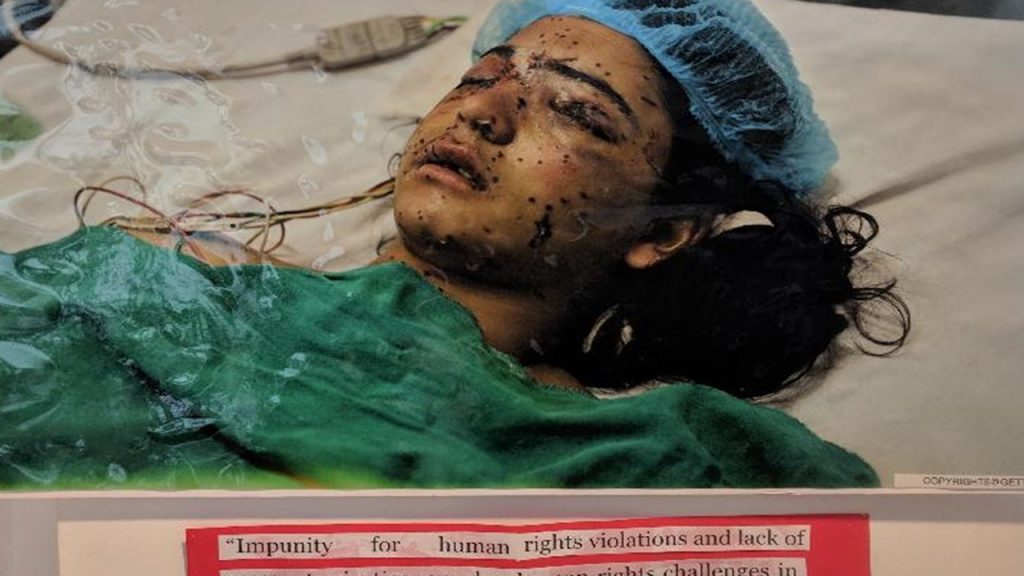
Amnesty International India has launched a global campaign #LetKashmirSpeak asking Prime Minister Narendra Modi’s BJP government to end the ‘draconian communication blackout” imposed in a strict military clampdown on millions of people in the disputed Kashmir region a month ago.
“The draconian communication blackout in [occupied] Kashmir is an outrageous protracted assault on the civil liberties of the people of Kashmir,” the human rights watchdog said Thursday, a month after New Delhi deprived the disputed region of its constitutional autonomy on August 5.
“While landline telephones have been announced to be restored, their obsoletion in the recent past will fall woefully short in facilitating communication for the 8 million people of Kashmir,” the AI’s India chapter said.
The repeal of the constitutional guarantees for Kashmir’s autonomy has been criticized as an attempt to change demographics of Indian-administered part of Jammu and Kashmir as it will allow Indians to have the right to acquire property and settle there permanently.
Modi says the move to repeal the autonomy of Kashmir is meant to integrate the region and bring economic development to its people. But Pakistan, which also controls part of the disputed territory, and many international organizations and political leaders have condemned the move as undemocratic and in violation of UN Security Council resolutions, which clearly give Kashmiris the right to determine their future.
Additionally, several media reports and witnesses say the Indian forces have used pellet guns and torture to quell any dissent in reaction to the unilateral move. Pakistan’s Prime Minister Imran Khan has drawn parallels between Nazi Germany during the II World War and Indian RSS parent organization of the BJP that follows exclusionary Hindutva ideology and seeks to make India a country for Hindus only.
In Washington, President Donald Trump has offered to mediate on the festering issue but also expressed the hope that Pakistan and India would be able to address it bilaterally.
At the United Nations, the Security Council deliberated the Kashmir crisis and escalating tensions between nuclear-armed Pakistan and India last month. UN Secretary General Antonio Guterres says the world body continues to adhere to its principled stand on Kashmir and has voiced serious concern over human rights violations and detentions in the Indian-administered Kashmir.
“The blackout has now been a month old and cannot be prolonged any further by the Indian government as it has grossly impacted the daily lives of Kashmiri people, their emotional and mental well-being, medical care, as well as their access to basic necessities and emergency services. It is tearing families apart,” said Aakar Patel, head of Amnesty International India.
“While the region of Jammu has begun to see easing of the lockdown in many districts, most of Kashmir still remains under a severe communications blackout. Depriving an entire population of their right to freedom of expression, opinion and movement for an indefinite period is akin to taking the region back to the dark ages,” said Patel.
“‘Naya Kashmir’ cannot be built without the Kashmiris. The country is yet to hear from Kashmir after a month of being repeatedly been told by the Indian government that all is normal. This is not normal. Let Kashmir speak.”
Amnesty International India says it acknowledges that the Indian government may have legitimate security concerns “which may merit reasonable restrictions on right to freedom of expression in certain circumstances,”, it does not believe the current shutdown complies with requirement of necessity, proportionality and legality set out under Article 19 of the International Covenant on Civil and Political Rights, to which India is a party.

A picture taken by Views and News of a poster exhibition on Kashmir at Pakistan Embassy in Washington D.C.
“Instead, it deprives the entire population of Kashmir of their right to freedom of expression and opinion and access to crucial information, thus inflicting a form of collective punishment on the 8 million people of Kashmir. Lack of transparency on the criteria used to cut off all communication services and what mechanisms are available to challenge the sweeping restrictions puts India in a clear violation of its international obligations.”
The human rights watchdog notes that “sketchy reports coming out of the region have highlighted unattended medical emergencies, mass arrests and detentions, children and youth being picked up in the middle of the night, torture of civilians, indiscriminate use of tear gas, rubber bullets and pellet guns at protestors.”

















